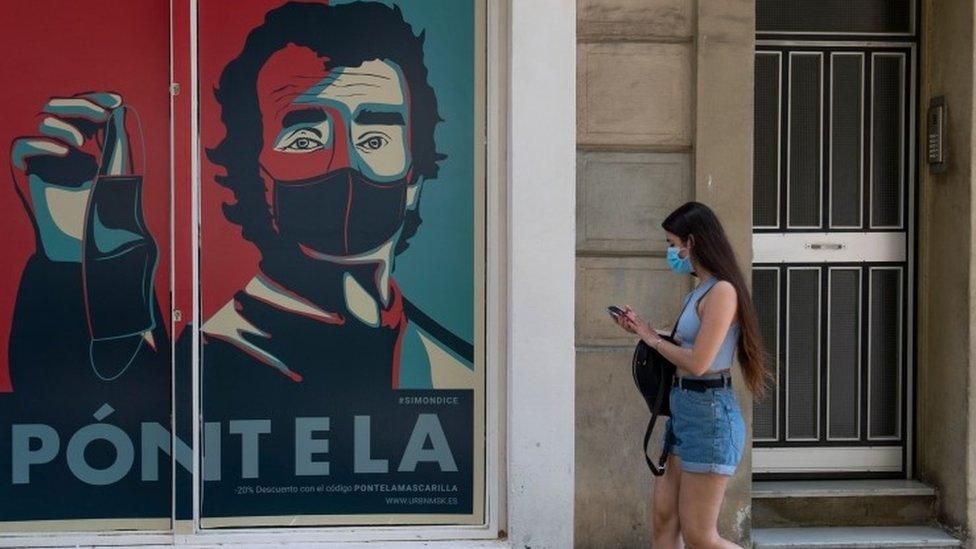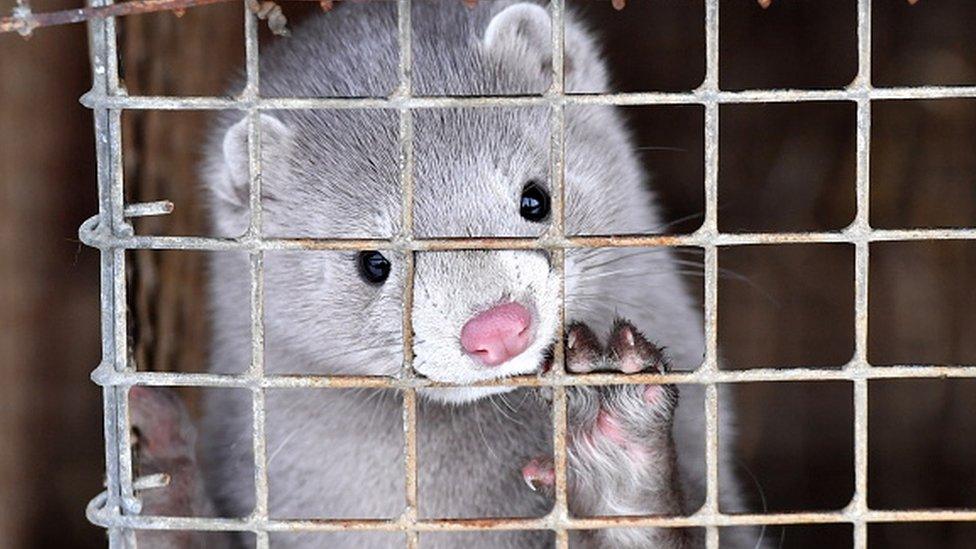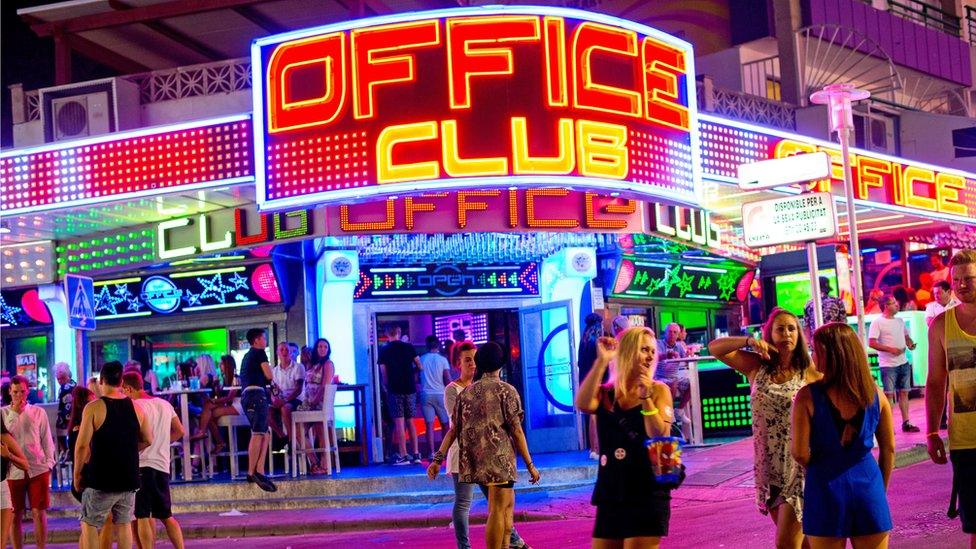Coronavirus spike continues amid new Catalonia restrictions
- Published

Mask-wearing is encouraged in Barcelona as the region endures new restrictions
Spain's north-eastern Catalonia region has again recorded a daily Covid-19 infection figure of more than 1,000, as residents endure new restrictions.
Health authorities are trying to halt this week's surge, which has led to four million people around Barcelona being asked to stay home for 15 days.
Catalonia's is the worst of 150 Spanish outbreaks and neighbouring France says closing borders should be discussed.
Spain has recorded 260,000 cases and there have been 28,400 deaths.
What's the latest in Catalonia?
The latest 24-hour figures from the region's department of health on Saturday record another 1,226 cases, 894 of them in the Barcelona metropolitan area, adding to a surge over the past week.
The surge led to tough new measures being announced on Friday.
Although they did not amount to a full lockdown, they have caused considerable concern in a region that was hoping to see an easing of restrictions.
The measures, for an initial period of 15 days for Barcelona, La Noguera and El Segrià,, external include:
No meetings of more than 10 people in public or private
No visits to nursing homes
Only leave the house for essential activities
Closure of nightclubs and gyms, restrictions on bars and restaurants, suspension of cultural activities and recreational sport
Barcelona bar owner Maria Quintana told AFP: "We'd just started to see things coming back to life with the arrival of a few foreign tourists, so this is a step backwards."
Spain only ended its tough national lockdown about four weeks ago and was hoping to kick-start the economy, particularly with tourism numbers.
The streets of Barcelona were reported emptier on Saturday, although some residents may have defied orders and headed off in cars for second homes.
Spain's king this week led tributes to health workers and Covid-19 victims
What has France said?
New Prime Minister Jean Castex was asked whether a closure of borders could be possible amid Spain's report of 150 new virus clusters.
He said: "We are monitoring this very closely, here in particular, because it is a real issue that we also need to discuss with the Spanish authorities."
The border was only reopened to general citizens on 21 June.
France's deaths from coronavirus currently stand at just over 30,000.
How are the EU's plans for coronavirus relief going?
On Saturday, discussions in Brussels over a huge post-coronavirus economic recovery plan ground on.
The second day of talks received mixed reviews. Italian Prime Minister Giuseppe Conte said there was a "stalemate" but Austrian Chancellor Sebastian Kurz said he thought they were going in the right direction.
Some "frugal" northern nations like the Netherlands and Sweden have balked at the €750bn ($857bn; £680bn) package, arguing it should be loans not grants.
A revised plan would tone down the level of grants but there appears to be a long way to go.
The talks are now going into a third day on Sunday.

A SIMPLE GUIDE: How do I protect myself?
IMPACT: What the virus does to the body
ENDGAME: How do we get out of this mess?
WITHOUT SYMPTOMS: The mystery of 'silent spreaders'

- Published17 July 2020

- Published16 July 2020
